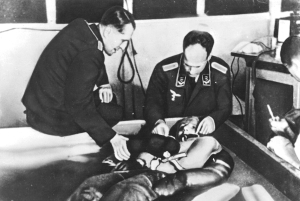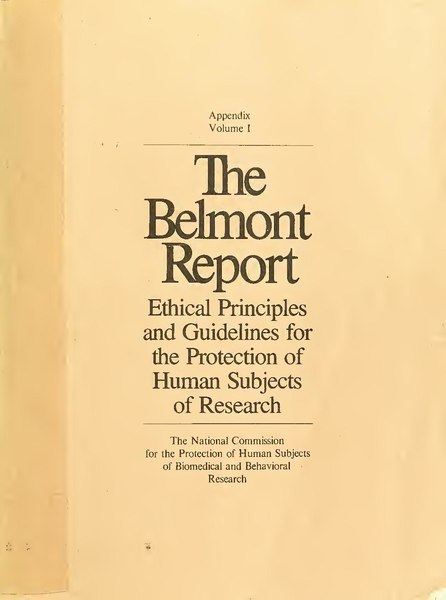
生命倫理学と医療人類学
Bioethics in Medical Anthropology
Professor
Ernst Holzlöhner (left); Doctor Sigmund Rascher (right) perform a cold
water immersion experiment at Dachau. The subject is wearing an
experimental Luftwaffe garment.
☆生命倫理学(バイオエシックス) とは、生物学、医学、技術の進歩から生まれるものも含め、健康に関する倫理的問題(主に人間に焦点を当てるが、最近で は動物倫理も含まれるようになってきている)に関心を持つ学問分野であり、専門的な実践の場でもある。社会における道徳的識別(どのような決定が「良い」 のか「悪い」のか、またその理由)に関する議論を提案し、しばしば医療政策や実践に関連するだけでなく、環境、福祉、公衆衛生などのより広範な問題にも関 わる。生命倫理学は、生命科学、バイオテクノロジー、医学、政治、法律、神学、哲学の関係において生じる倫理的な問題を扱う。プライマリ・ケア、医学の他 の分野(「普通の倫理」)、科学における倫理教育、動物倫理、環境倫理、公衆衛生に関する価値観の研究が含まれる(→「バイオエシックスの可能性」)。
★医学と人類学を架橋(ブリッジ)する学問を医療人類学(medical anthropology)と
呼ぶ。より平凡には、医療人類学は、「人間の健康と疾病、医療システム、生物文化的適応」を研究する学問である。それは、多次元的かつ生態学的な視点から
人間を捉える。人類学および応用人類学の中で最も高度に発展した分野の一つであり、文化や社会が保健や医療、関連する問題を中心に組織されたり、その影響
を受けたりする方法を研究する社会文化人類学の一分野で[も]ある。医療人類学」という用語は、1963年以来、人類学者による、保健、疾病、およびそれ
らに関連する看護/ケア実践の社会的プロセスと文化的表象に関する実証的研究と理論的生産のためのラベルとして使用されてきた。さらにヨーロッパでは、
「医療人類学」「保健人類学」「疾病人類学」という用語も使用されており、「医療人類学」は19世紀のオランダ語「medische
anthropologie」の翻訳語でもあった。この用語は1940年代に保健と病気に関する哲学的研究を指すために一部の著者によって使われたという
経緯もある。
以下
は15回のシラバス案である。2019年度開講の「医療人類学入門
(異文化理解)2019」に興味のある方は、下線部でリンクします。
| 1.医療倫理学 | 医療倫理学(いりょう・りんりがく)と
は、保健ケアとくに医療に関する倫理的事象をあつかう研究分野である。 |
| 2.生命倫理学 | 生命倫理・バイオエシックス (bioethics, bio-ethics, Bioethics, Bio-ethics)とは、人間を対象にした治療および実験に関する倫理・道徳、ひいてはそれらに関する諸研究のことである。(→生命倫理学関連年表) |
| 3.バイオエシックス | (承前) |
| 4.倫理学者=人類学者? | |
| 5.バイオエシックスの歴史 | |
| 6.ニューロエシックス | |
| 7.医療と人権 | |
| 8.人類学的医学・人類学的医療 | 文化人類学的実践に関する2つの倫理原則:人類学的知識をもって既存の近代
西洋医療を改変したり組み替えたりするより実践性の高い医療的 実践を人類学的医学・人類学的医療(Anthropological
Medicine)という。 |
| 9.よい臨床コミュニケーションと は? | |
| 10.臨床医工学におけるコミュ ニケーション・モデルの構築 | |
| 11.今日において倫理学者の 名前で呼ばれる人たち | |
| 12.患者サイボー グ宣言(あるいはサイバーパンク入門) | |
| 13.ヘルシンキ 宣言 | インフォームド・コンセント/医療研究における不正/医療と人権03/倫理
委員会/倫理委員会(IRB)の社会的機能/社会調査研究の倫理について学ぶ/ニュルンベルク・コード/////////// |
| 14.患者の権利に関する世界医学協 会のリスボン宣言 | |
| 15.臨床コミュニケーションの文化 的多様性 | |
| 番外:ナチスの戦争犯罪と生命倫理学 |
ニュルンベルク医師裁判/ニュルンベルク・コード/生体実験と倫理/(Bernard_Pri_Med_Experimentale_1858-1877.pdf)
/ペーパークリップ作戦/フベルトゥス・シュ トルークホルト/九州大学生体解剖事件の生命倫理学///// |
★ビーチャムとチルドレスとプリンシプル主義
| 生命医学倫理 /
トム・L・ビーチャム,ジェイムズ・F・チルドレス著 ; 永安幸正,立木教夫監訳, 東京 : 成文堂 , 1997.3 バイオメディカルエシックス(生命医学倫理)の最高峰を指し示す「現代的古典」!科学技術の最先端にあって、人間存在の根底にある「生と死」に向きあわね ばならぬ宿命にある「医療」と「社会」の道徳的原理を、四原理—自律・無危害・仁恵・正義—の立場から問う。 目次 第1章 道徳規範 第2章 道徳的人格 第3章 自律の尊重 第4章 無危害 第5章 仁恵 第6章 正義 第7章 専門家‐患者関係 第8章 道徳理論 第9章 方法および道徳的正当化 |
|
| Tom Lamar Beauchamp
(born 1939) is an American philosopher specializing in the work of
David Hume, moral philosophy, bioethics, and animal ethics. He is
Professor Emeritus of Philosophy at Georgetown University,[1] where he
was Senior Research Scholar at the Kennedy Institute of Ethics.[2] Beauchamp authored or co-authored several books on ethics and on Hume, including Hume and the Problem of Causation (1981, with Alexander Rosenberg), Principles of Biomedical Ethics (1985, with James F. Childress), and The Human Use of Animals (1998, with F. Barbara Orlans et al). He is the co-editor with R. G. Frey of The Oxford Handbook of Animal Ethics (2011). He is also the co-editor of the complete works of Hume, The Critical Edition of the Works of David Hume (1999), published by Oxford University Press.[1] Education He earned a BA from Southern Methodist University in 1963, a BD from Yale Divinity School, and PhD in philosophy from Johns Hopkins University in 1970. He is a fellow of the Hastings Center.[1] Career Beauchamp worked on the staff of the National Commission for the Protection of Human Subjects of Biomedical and Behavioral Research, where he co-wrote the Belmont Report in 1978. He subsequently joined with James Childress to write Principles of Biomedical Ethics (1979), the first major American bioethics textbook.[3] Beauchamp is also an expert on the philosophy of David Hume. He is the coeditor of the complete works of Hume published by Oxford University Press, and together with Alexander Rosenberg is the author of Hume and the Problem of Causation (1981), in which Hume's regularity theory of causation is defended, along with a nonskeptical interpretation of Hume's arguments against induction. He has also written extensively about animal rights, and has defended a theory of animal rights which would significantly alter, though would not end, the ways in which non-human animals are currently used.[4] Beauchamp retired in 2016.[5] A ceremony celebrating his career featured tributes from Maggie Little, Bill Blattner, Jeffrey Kahn, James Childress, Alexander Rosenberg, Patricia King, David DeGrazia, Wayne Davis, Jack DeGioia, and his children.[6] |
トム・ラマー・ビーチャム(1939年生まれ)は、デイヴィッド・
ヒュームの著作、道徳哲学、生命倫理、動物倫理を専門とするアメリカの哲学者である。ジョージタウン大学哲学科名誉教授[1]であり、ケネディ倫理研究所
の上級研究員を務めた[2]。 ヒュームと因果関係の問題』(1981年、アレクサンダー・ローゼンバーグとの共著)、『生物医学倫理原則』(1985年、ジェイムズ・F・チルドレスと の共著)、『動物の人間利用』(1998年、F・バーバラ・オーランズらとの共著)など、倫理学やヒュームに関する著作がある。2011年には、R.G. フレイとの共編著『The Oxford Handbook of Animal Ethics』を出版した。また、オックスフォード大学出版局から出版されているヒューム全集『The Critical Edition of the Works of David Hume』(1999年)の共同編集者でもある[1]。 学歴 1963年にサザンメソジスト大学で学士号、イェール大学神学部で学士号、1970年にジョンズ・ホプキンス大学で哲学博士号を取得。ヘイスティングス・ センターのフェローである[1]。 経歴 ビーチャムは、生物医学・行動学研究の被験者保護のための国家委員会(National Commission for the Protection of Human Subjects of Biomedical and Behavioral Research)のスタッフとして働き、1978年にベルモント報告書を共同執筆した。その後、ジェームズ・チルドレスとともに、アメリカ初の主要な生 命倫理の教科書である『Principles of Biomedical Ethics』(1979年)を執筆した[3]。オックスフォード大学出版局から出版されているヒューム全集の共同編集者であり、アレクサンダー・ローゼ ンバーグとともに『Hume and the Problem of Causation』(1981年)の著者である。この本では、ヒュームの因果関係の規則性理論が、帰納法に対するヒュームの議論の懐疑的でない解釈とと もに擁護されている。 また、動物の権利についても幅広く執筆しており、人間以外の動物が現在利用されている方法を、終わらせることはできないが、大きく変えるであろう動物の権 利の理論を擁護している[4]。 ボーシャンは2016年に引退した[5]。彼のキャリアを祝うセレモニーでは、マギー・リトル、ビル・ブラットナー、ジェフリー・カーン、ジェームズ・チ ルドレス、アレクサンダー・ローゼンバーグ、パトリシア・キング、デイヴィッド・デグラツィア、ウェイン・デイヴィス、ジャック・デジョイア、そして彼の 子供たちから賛辞が贈られた[6]。 |
| https://en.wikipedia.org/wiki/Tom_Beauchamp |
|
| James Franklin
Childress
(/ˈtʃɪldrɛs/; born October 4, 1940) is a philosopher and theologian
whose scholarship addresses ethics, particularly biomedical ethics.
Currently he is the John Allen Hollingsworth Professor of Ethics at the
Department of Religious Studies at the University of Virginia and
teaches public Policy at the Frank Batten School of Leadership and
Public Policy. He is also Professor of Medical Education at this
university and directs its Institute for Practical Ethics and Public
Life. He holds a B.A. from Guilford College, a B.D. from Yale Divinity
School, and an M.A. and Ph.D. from Yale University. He was
vice-chairman of the national Task Force on Organ Transplantation, and
he has also served on the board of directors of the United Network for
Organ Sharing (UNOS), the UNOS Ethics Committee, the Recombinant DNA
Advisory Committee, the Human Gene Therapy Subcommittee, the Biomedical
Ethics Advisory Committee, and several Data and Safety Monitoring
Boards for NIH clinical trials. From 1996 to 2001, he served on the
presidentially-appointed National Bioethics Advisory Commission. He is
a fellow of the Hastings Center, an independent bioethics research
institution. His works include: with Tom Beauchamp: Principles of Biomedical Ethics (1978; Oxford University Press, Oxford 2013, 7th ed.). Practical reasoning in bioethics, Bloomington: Indiana Univ. Pr. 1997. A new dictionary of Christian ethics, London: SCM Press 1986 (co-edited with John Macquarrie). Who should decide? Paternalism in health care, New York: Oxford Univ. Pr. 1982. Moral responsibility in conflicts. Essays on nonviolence, war, and conscience, Baton Rouge: Louisiana State Univ. Pr. 1982. Priorities in biomedical ethics, Philadelphia: Westminster Pr. 1981. Civil disobedience and political obligation. A study in Christian social ethics, New Haven: Yale Univ. Pr. 1971. |
ジェームズ・フランクリン・チルドレス(James
Franklin Childress, /ˈɛ,
1940年10月4日生まれ)は哲学者、神学者であり、倫理学、特に生物医学倫理学を専門としている。現在、ヴァージニア大学宗教学部のジョン・アレン・
ホリングスワース倫理学教授であり、フランク・バッテン指導者・公共政策大学院で公共政策を教えている。また、同大学の医学教育教授でもあり、実践倫理・
公共生活研究所を指導している。ギルフォード・カレッジで学士号、イェール大学神学部で学士号、イェール大学で修士号と博士号を取得。全米臓器移植タスク
フォース副委員長を務めたほか、United Network for Organ
Sharing(UNOS)理事会、UNOS倫理委員会、組み換えDNA諮問委員会、ヒト遺伝子治療小委員会、生物医学倫理諮問委員会、NIH臨床試験の
データ・安全性監視委員会などの委員を歴任。1996年から2001年まで、大統領が任命した国家生命倫理諮問委員会の委員を務めた。独立系生命倫理研究
機関であるヘイスティングス・センターのフェローでもある。 著書に以下のものがある: トム・ボーシャンとの共著 トム・ビーチャムとの共著:『Principles of Biomedical Ethics』(1978年、オックスフォード大学出版局、オックスフォード、2013年、第7版)。 生命倫理における実践的推論、ブルーミントン: 1997年、インディアナ大学出版。 A new dictionary of Christian ethics, London: SCM Press 1986(ジョン・マッカリーとの共編著)。 誰が決めるべきか?医療におけるパターナリズム、ニューヨーク: Oxford Univ. Pr. 1982. 紛争における道徳的責任。非暴力、戦争、良心に関するエッセイ、バトンルージュ: ルイジアナ州立大学出版局 1982年 生物医学倫理における優先順位、フィラデルフィア: 1981年 市民的不服従と政治的義務。キリスト教社会倫理の研究』 ニューヘイブン:イェール大学出版局 1971年 |
| https://en.wikipedia.org/wiki/James_Childress |
|
| Principlism is an applied ethics
approach to the examination of moral dilemmas centering the application
of certain ethical principles. This approach to ethical decision-making
has been prevalently adopted in various professional fields, largely
because it sidesteps complex debates in moral philosophy at the
theoretical level. [1] Rather than engaging in abstract debate about the best or most appropriate approach at the normative level (e.g., virtue ethics, deontology or consequentialist ethics), principlism is purported to offer a practical method of dealing with real-world ethical dilemmas.[2] Origins The origins of principlism, as we know it today, are to be found in two influential publications from the late 1970s in the United States.[3]  The Belmont Report. The Belmont Report. The approach was first advocated by the National Commission for the Protection of Human Subjects of Biomedical and Behavioral Research in a document called the "Belmont Report". The Commission came into existence on July 12, 1974 when the National Research Act (Pub. L. 93-348) was signed into law.[4] After four years of monthly deliberations, the Commission met in February 1976 for four days at the Smithsonian Institution's Belmont Conference Center which resulted in a statement of three basic ethical principles: autonomy, beneficence, and justice, for biomedical and behavioural research. The approach was introduced for the second time by Tom Beauchamp and James Childress in their book Principles of Biomedical Ethics (1979), in which they state that the following four prima facie principles lie at the core of moral reasoning in health care: respect for autonomy, beneficence, non-maleficence, and justice. In the opinion of Beauchamp and Childress, these four principles are part of a "common morality;" an approach that "takes its basic premises directly from the morality shared by the members of society—that is, unphilosophical common sense and tradition."[5]  Georgetown University campus The four principles are sometimes referred to as the Georgetown principles or the Georgetown mantra, so-called because both Beauchamp and Childress were based at Georgetown University when the first edition of Principles of Biomedical Ethics was published. The principlist approach is derived from normative ethical thought, but it is not aligned to any one single theory. Whilst Beauchamp and Childress claim that these principles are commonly understood and accepted within society—and thus have a broad degree of support—they also assert that they are drawn from two normative ethical traditions: the duty-based moral philosophy (deontological approach) of Immanuel Kant; and the outcome-based (consequentialist) ethics of Jeremy Bentham and John Stuart Mill.[6] The four principles These ethical principles can be elucidated in slightly different ways, but the explanations provided by Beauchamp and Childress can be summarised as follows.[6] Respect for autonomy This principle refers to the capacity of an individual to be self-determining and to make decisions for themselves without undue pressure, coercion or other forms of persuasion. It is contrasted with the notion of paternalism which occurs when actions of a health care practitioner override or do not seek to respect the wishes of the patient, believing that they are better able to decide what is in the patient's best interests. The doctor has no right to make important decisions on behalf of competent patients, as a general principle. Even where the doctor acts in the patient's interests, it is important that the patient's own choices and wishes be respected. Respect for autonomy is operationalised through the requirement for informed consent whereby people who have the capacity for self-determination must be fully informed before being asked for their consent. Beneficence This principle describes an obligation to act for the benefit of others. Acting in this way might involve preventing or removing harm, or it might involve the active promotion of some good (e.g., health). The aim of beneficent action is to produce the "best" one can out of a range of possibilities. It can involve cost/benefit analysis such that the "best" here will be the possible action in which the benefits produced maximally outweigh the costs or the risks. Put simply, it is to act always in the best interests of the patient. Non-maleficence Duties of non-maleficence require us to refrain from causing deliberate harm or intentional avoidance of actions that might be expected to cause harm. Generally, obligations of non-maleficence are more stringent than obligations of beneficence, but again a cost/benefit analysis may need to be undertaken to identify the best possible action. In some situations harm may be unavoidable and then we must be sure that the benefits outweigh the harm. Justice The principle of justice requires that we do what we can to ensure that costs and benefits are fairly distributed. It is possible to obey the principle of non-maleficence and the principle of beneficence, yet still not behave in an ethical manner, for these two principles say nothing about how benefits should be apportioned. In a given case it may well be that we can only procure a major benefit for some people by slightly harming the interests of others. The principle of beneficence may say we should go ahead, but then the benefits and costs would be unfairly distributed. As a practical approach Principlism has evolved into a practical approach for ethical decision-making that focuses on the common-ground moral principles of autonomy, beneficence, nonmaleficence, and justice. The practicality of this approach is that principlism can be derived from, is consistent with, or at the very least is not in conflict with a multitude of ethical, theological, and social approaches towards moral decision-making. This pluralistic approach is essential when making moral decisions institutionally, pedagogically, and in the community as pluralistic interdisciplinary groups by definition cannot agree on particular moral theories or their epistemic justifications. However, pluralistic interdisciplinary groups can and do agree on intersubjective principles. In the development of a principlistic moral framework it is not a necessary condition that the epistemic origins and justifications of these principles be established. Rather the sufficient condition is that most individuals and societies, would agree that both prescriptively and descriptively there is wide agreement with the existence and acceptance of the general values of autonomy, nonmaleficence, beneficence, and justice. Principlism is a useful addition to trauma-informed care frameworks.[7] As a matter of debate Principlism has been subjected to challenges since its introduction by Tom Beauchamp and James Childress in 1979. The term principlism itself was first presented, not by Beauchamp and Childress, but by two of the most vocal critics, K. Danner Clouser and Bernard Gert. Criticism Clouser and Gert assert that the principled approach lacks theoretical unity; the principles lack any systematic relationship because they are drawn from conflicting moral theories, and hence often lead to conflicting conclusions.[8][9] The apparent "pick and mix" selection of certain theories and principles, without an underlying theoretical basis, is a cause of great concern for Clouser who states:[10] It is a kind of relativism espoused (perhaps unwittingly) by many books (usually anthologies) of bioethics. They parade before the reader a variety of "theories" of ethics—Kantianism, deontology, utilitarianism, other forms of consequentialism, and the like—and say, in effect, choose whichever of the competing theories, maxims, principles, or rules suits you for any particular case. Just take your choice! They each have flaws—which are always pointed out—but on balance, the authors seem to be saying, they are probably all equally good! Others have objected to the choice or limitations of the particular principles, such as Herissone-Kelly (2003), who questions the argument that Beauchamp and Childress present in support of their global applicability;[11] and Walker (2009), who believes that more principles need to be added if they are truly to represent a common sense morality.[12] Additionally, it has been suggested, that application of a principlist approach serves to exclude the moral agent—who performs the act—from the moral judgements; in order to see what is good and not merely what are the rights involved, we must consider the virtue and intentions of the person acting.[13][14] For example, Häyry (2003), in his scrutiny of the objection that the "Georgetown principles" are not truly representative of European values (being more aligned with American liberalism), points to the lack of representation of virtue ethics within their chosen principles:[15] By ignoring moral (and religious) virtues, and thereby all deliberations about the ideal nature of a good, virtuous human being, Beauchamp and Childress left their views wide open to accusations of short-sighted hedonism; excessive individualism and sneaking nihilism. Support On the other hand, there are also staunch supporters of principlism such as Raanan Gillon who has claimed that the four principles can explain and justify all the substantive moral claims in medical ethics. According to Gillon, these principles provide a transcultural, transnational, transreligious, and transphilosophical framework for ethical analysis.[16][17][18] In spite of any shortcomings of the principlist approach in bioethical analysis, the perceived benefits have been significant as evidenced by its pervasive use. Principlism is by far the most dominant approach to ethical analysis in healthcare and the book Principles of Biomedical Ethics by Beauchamp and Childress remains the most influential book in modern bioethics. |
プリンシプル主義とは、特定の倫理原則の適用を中心に道徳的ジレンマを
検討する応用倫理学的アプローチである。倫理的意思決定に対するこのアプローチは、様々な専門分野で広く採用されているが、その主な理由は、理論レベルで
の道徳哲学における複雑な議論を回避することができるからである。[1] 規範レベル(例えば、徳倫理学、脱ontology、帰結主義倫理学)において最良または最も適切なアプローチに関する抽象的な議論に関与するのではな く、原理主義は現実世界の倫理的ジレンマに対処する実践的な方法を提供するとされている[2]。 起源 今日私たちが知っているようなプリンシプル主義の起源は、1970年代後半にアメリカで出版された2つの影響力のある出版物にある[3]。  ベルモント・レポート ベルモント・レポート このアプローチは、「ベルモント報告」と呼ばれる文書の中で、「生物医学的および行動学的研究の被験者保護のための国家委員会(National Commission for the Protection of Human Subjects of Biomedical and Behavioral Research)」によって初めて提唱された。同委員会は、1974年7月12日に国家研究法(Pub.L. 93-348)が成立した際に発足した[4]。4年にわたる月1回の審議の後、同委員会は1976年2月にスミソニアン博物館のベルモント会議センターで 4日間の会合を開き、その結果、生物医学および行動学的研究のための3つの基本的な倫理原則、すなわち自律性、恩恵、正義に関する声明が発表された。 このアプローチは、トム・ビーチャム(Tom Beauchamp)とジェームス・チルドレス(James Childress)の著書『Principles of Biomedical Ethics』(1979年)において2度目に紹介され、その中で彼らは、医療における道徳的推論の中核には、自律性の尊重、恩恵、非利益、正義の4つの 一応の原則があると述べている。BeauchampとChildressの意見では、これらの4つの原則は「共通の道徳」の一部であり、「社会の構成員が 共有する道徳、つまり哲学的でない常識や伝統から直接その基本的前提を得る」アプローチである[5]。  ジョージタウン大学キャンパス この4原則は、ジョージタウンの原則またはジョージタウンのマントラと呼ばれることもあるが、これは、『Principles of Biomedical Ethics(生物医学倫理原則)』の初版が出版された当時、ボーチャンとチルドレスの両名がジョージタウン大学を拠点としていたことに由来する。 原理主義的アプローチは、規範的倫理思想に由来するものであるが、特定の理論に沿ったものではない。BeauchampとChildressは、これらの 原則は社会で一般的に理解され受け入れられており、したがって幅広い支持を得ていると主張する一方で、これらの原則は2つの規範的倫理的伝統、すなわちイ マヌエル・カントの義務に基づく道徳哲学(脱ontological approach)と、ジェレミー・ベンサムとジョン・スチュアート・ミルの結果に基づく(帰結主義)倫理学から導き出されたものであるとも主張している [6]。 4つの原則 これらの倫理原則は少しずつ異なる方法で解明することができるが、BeauchampとChildressによる説明は以下のように要約することができる [6]。 自律性の尊重 この原則は、不当な圧力や強制、その他の説得を受けることなく、個人が自己決定し、自ら意思決定を行う能力を指す。この原則は、医療従事者が患者の最善の 利益を決定することができると信じて、患者の意思を無視したり、尊重しようとしない場合に生じるパターナリズムの概念と対照的である。一般的な原則とし て、医師は有能な患者に代わって重要な決定を下す権利はない。医師が患者の利益のために行動する場合でも、患者自身の選択と希望が尊重されることが重要で ある。 自律性の尊重は、インフォームド・コンセントの要件を通じて運用され、自己決定能力のある人は、同意を求められる前に十分な説明を受けなければならない。 恩恵 この原則は、他者の利益のために行動する義務について述べている。このように行動することは、危害の予防や除去を含む場合もあれば、何らかの善(例えば健 康)を積極的に促進することを含む場合もある。受益的行動の目的は、さまざまな可能性の中から「最善」のものを生み出すことである。コスト/便益分析を伴 うこともあり、その場合、「最善」とは、生み出される便益がコストやリスクを最大限に上回る可能性のある行動となる。簡単に言えば、常に患者の最善の利益 のために行動することである。 非利益主義 非利益義務とは、意図的な危害の発生や、危害の発生が予想される行為の意図的な回避を控えることを要求するものである。一般的に、非利益の義務は、利益の 義務よりも厳しいが、最善の行動を特定するために、費用/便益分析を行う必要がある場合もある。状況によっては危害が避けられない場合もあるが、その場合 は、利益が危害を上回ることを確認しなければならない。 正義 正義の原則は、費用と便益が公平に配分されるよう、できることを行うことを求める。この2つの原則は、利益をどのように配分すべきかについて何も述べてい ないからである。ある場合、他の人々の利益をわずかに害することによってのみ、ある人々のために大きな利益を得ることができるということもありうる。受益 の原則に従えば、それを行うべきかもしれないが、その場合、便益とコストは不公平に配分されることになる。 実践的アプローチとして プリンシプル主義は、自律性、受益性、非利益性、正義という共通基盤の道徳原則に焦点を当てた、倫理的意思決定のための実践的アプローチへと発展してき た。このアプローチの実用性は、プリンシプル主義が倫理的意思決定に対する多数の倫理的、神学的、社会的アプローチから導き出され、それと一致し、少なく とも対立しないということである。このような多元的アプローチは、制度的、教育的、地域社会的に道徳的決定を下す際に不可欠である。というのも、多元的な 学際的グループは、定義上、特定の道徳理論やその認識論的正当化について合意することができないからである。しかし、多元的な学際的グループは、間主観的 な原則については合意することができるし、実際に合意している。原理主義的な道徳的枠組みを発展させる上で、これらの原理の認識論的起源や正当性が確立さ れることは必要条件ではない。むしろ十分条件は、ほとんどの個人と社会が、規定的にも記述的にも、自律、非利益、恩恵、正義という一般的価値の存在と受容 に広く同意していることである。 プリンシプル主義は、トラウマ・インフォームド・ケアの枠組みに加える有用なものである[7]。 議論として プリンシプル主義は、1979年にTom BeauchampとJames Childressによって紹介されて以来、挑戦の対象となってきた。プリンシプル主義という言葉自体は、ボーシャンとチルドレスによってではなく、K. ダナー・クルーサーとバーナード・ガートという2人の最も声高な批判者によって初めて提示された。 批判 クルーサーとゲルトは、原理主義的アプローチは理論的な統一性を欠いていると主張している。原理は相反する道徳理論から引き出されているため、体系的な関 係を欠いており、それゆえにしばしば相反する結論を導くことになる。 生命倫理の多くの本(通常はアンソロジー)が(おそらく無意識のうちに)支持しているのは、一種の相対主義である。彼らは読者の前に、倫理に関するさまざ まな「理論」-カント主義、脱ontology、功利主義、他の形の帰結主義など-を並べ立て、事実上、競合する理論、最大公約数、原則、ルールのうち、 特定のケースに適したものを選べと言う。好きな方を選べばいい!それぞれに欠点があり、それは常に指摘されているが、バランスを考えれば、おそらくどれも 等しく優れている、と著者は言っているようだ! また、BeauchampとChildressがグローバルな適用可能性を支持する論拠に疑問を呈するHerissone-Kelly(2003)や [11]、真に常識的な道徳を表すのであれば、より多くの原則を追加する必要があると考えるWalker(2009)のように、特定の原則の選択や制限に 異議を唱える者もいる[12]。 さらに、原理主義的なアプローチを適用することは、道徳的判断から行為を行う者である道徳的行為者を除外することにつながるということが示唆されている。 何が善であり、単に関係する権利が何であるかを見るのではなく、行為を行う者の徳と意図を考慮しなければならない。 [13][14]例えば、Häyry(2003)は、「ジョージタウンの原則」がヨーロッパの価値観を真に代表するものではない(よりアメリカの自由主義 に沿ったものである)という反論を精査する中で、選ばれた原則の中に徳倫理が表現されていないことを指摘している:[15]。 道徳的な(そして宗教的な)美徳を無視することによって、それによって善良で高潔な人間の理想的な性質に関するすべての審議を無視することによって、ボー シャンとチルドレスは近視眼的な快楽主義、過剰な個人主義、忍び寄るニヒリズムという非難に対して彼らの見解を大きく開いたままにしている。 サポート 一方、ラナン・ギロンのような原理主義を支持する人々もいる。彼は、4つの原理は医療倫理におけるすべての実質的な道徳的主張を説明し、正当化することが できると主張している。ギロンによれば、これらの原則は倫理的分析のためのトランスカルチャー、トランスナショナル、トランス宗教、トランスフィロソフィ カルな枠組みを提供している[16][17][18]。 生命倫理分析における原理主義的アプローチの欠点にもかかわらず、その広範な使用によって証明されているように、認識されている利点は重要であった。プリ ンシプル主義は、ヘルスケアにおける倫理的分析において圧倒的に支配的なアプローチであり、BeauchampとChildressの著書 『Principles of Biomedical Ethics』は、現代の生命倫理において最も影響力のある本であり続けている。 |
| https://en.wikipedia.org/wiki/Principlism |
ナチと生命倫理を考える(リンク)

Jewish children victims of medical
experiments in Auschwitz(出典は下線)
生 命倫理学と医療人類学の関連リンク集
文献
その 他の情報
雑多な文献集 以下のページはサイト 内で「生 命」+「倫理」が含まれているものの一部です。上記の趣旨に関連付けて御参照ください。きっと何か発見できるはずです!
Copyleft, CC, Mitzub'ixi Quq Chi'j, 1996-2099
Copyleft, CC, Mitzub'ixi Quq Chi'j, 1996-2099
☆
 ☆
☆